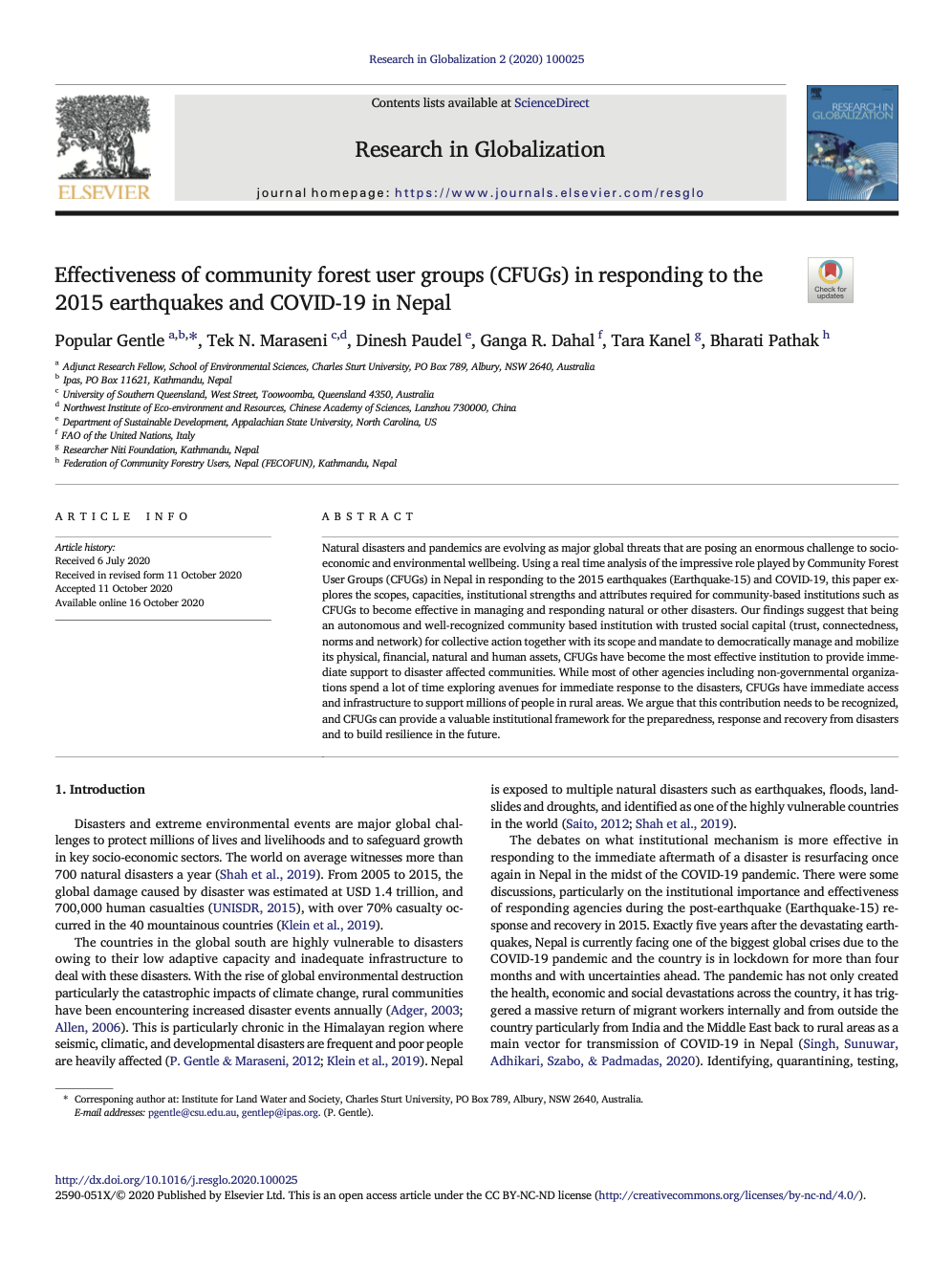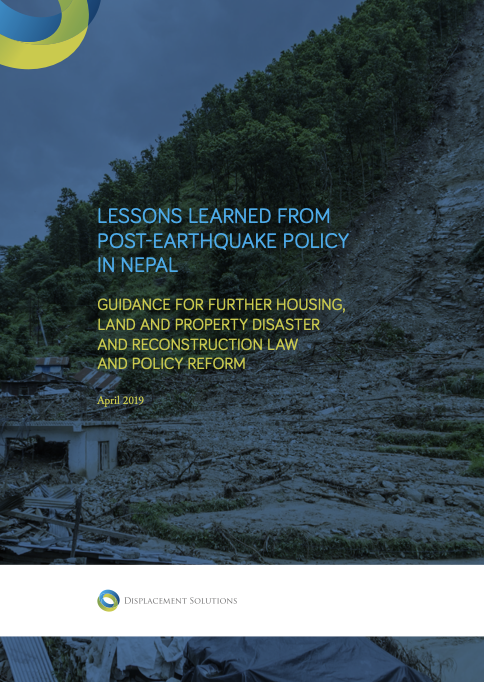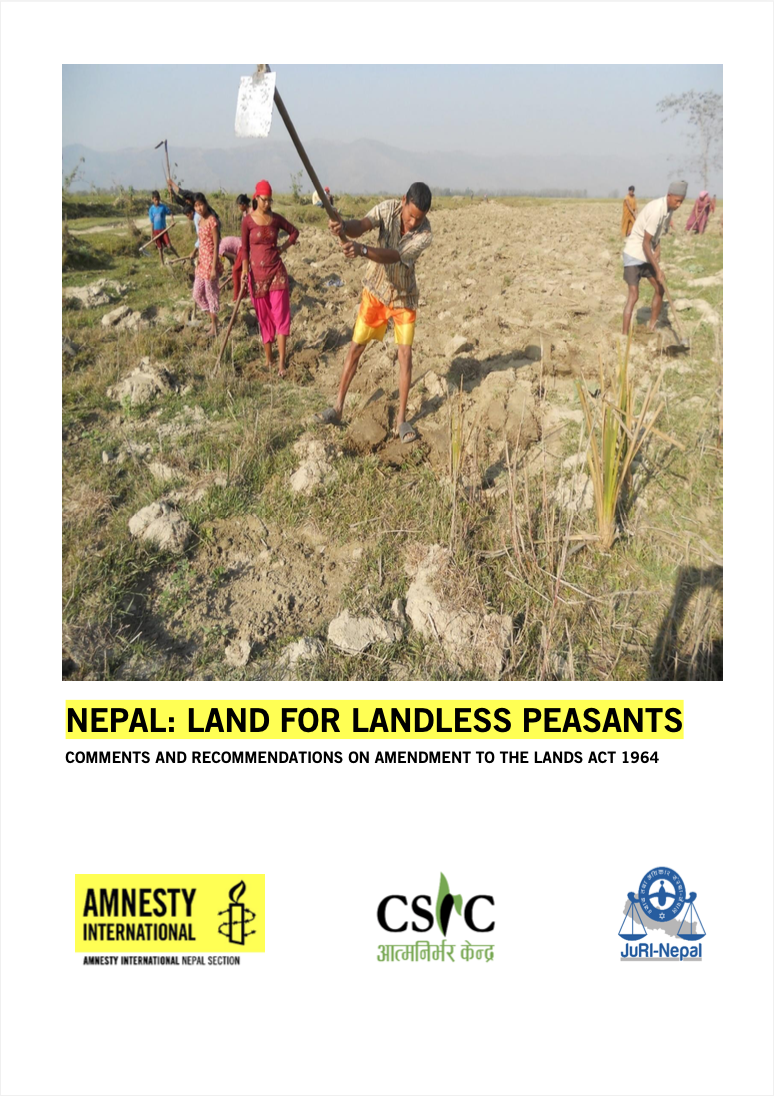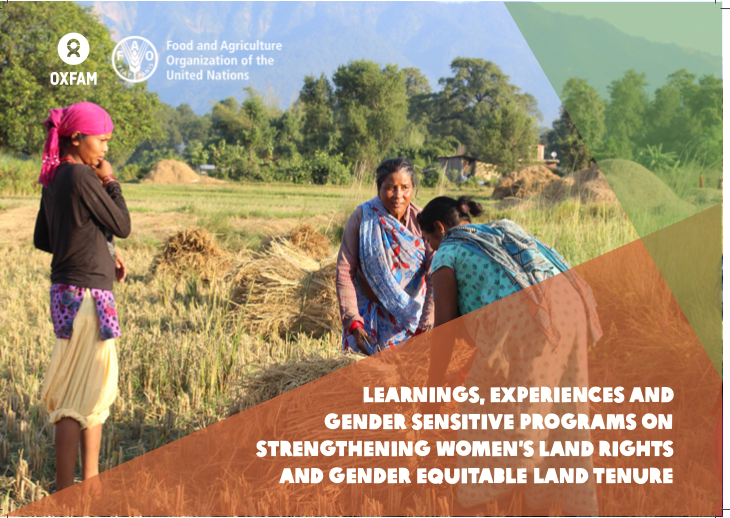
Topics and Regions
Daniel Hayward (UK) worked around Europe for 15 years as a dancer, choreographer and dance writer. Following retraining in sustainable development, he now works as an international development researcher, focused on land relations, agricultural value chains, gender, and migration. As well as working for Land Portal, Daniel is the project coordinator of the Mekong Land Research Forum at Chiang Mai University, and consultant for a variety of local and international NGOs and research institutes.
Details
Location
Contributions
Displaying 381 - 390 of 835What is lacking in Nepal’s land reform initiative?
Although land reform has been a priority area of the government, land use planning has always remained under the shadow of revenue collection and land distribution.
New land legislation guarantees tenure security and access to land for all Nepali
Nepal has stepped into yet another and very important milestone in guaranteeing security of tenure and access to land for all. Following the promulgation of the new Constitution in September 2015, the Government of Nepal amended the Lands Act of 1964 through enacting a Lands (Seventh Amendment) Act in 2018 which provided a legal framework for implementation of Article 40 (5) of the Constitution on the provision of land to landless Dalits.
EDITORIAL: Land to the landless
In a bid to expedite the distribution of land ownership certificates to the landless people and decentralise the federal responsibility, the government has formed committees of the Landless Squatters' Problems Resolution Commission in all the 77 districts of the country. Each of the seven-member committees will include a chairperson and two others appointed by the government, with the remaining members representing the district Land Revenue Office, Survey and Forest Offices and the District Coordination Committee.
Effectiveness of community forest user groups (CFUGs) in responding to the 2015 earthquakes and COVID-19 in Nepal
Natural disasters and pandemics are evolving as major global threats that are posing an enormous challenge to socio- economic and environmental wellbeing. Using a real time analysis of the impressive role played by Community Forest User Groups (CFUGs) in Nepal in responding to the 2015 earthquakes (Earthquake-15) and COVID-19, this paper explores the scopes, capacities, institutional strengths and attributes required for community-based institutions such as CFUGs to become effective in managing and responding natural or other disasters.
2,468 acres of forest land recovered in past 8 months: Bangladesh Forest Department
The Bangladesh Forest Department has recovered 2,468 acres of forest land from grabbers in the last eight months.
Officials of the forest department shared this information at a meeting of the parliamentary standing committee on environment, forest and climate change affairs ministry at the Jatiya Sangsad Bhaban.
Ruling Awami League MP and chief of the parliamentary watchdog Saber Hossain Chowdhury presided over the meeting at the Jatiya Sangsad Bhaban.
EU Energy Project in Nepal Sets Landmark Precedent on Indigenous Consent
The European Investment Bank has large investments in Nepal, with four projects in its energy sector, but has done little to stop rights violations.
Lessons Learned from Post-Earthquake Policy in Nepal
Displacement Solutions was approached and commissioned by DFID to carry out research on the housing, land and property rights issues arising from the reconstruction process, with an emphasis on the planned relocation aspects thereof. Displacement Solutions undertook a three-person mission to Nepal in November 2018 during which time extensive interviews were carried out, field visits made, and film footage taken for the production of a short documentary film which has since been completed.
Nepal: Land for Landless Peasants
ABSTRACTED FROM OVERVIEW:
The Lands Act 1964 was the first comprehensive piece of legislation which came into existence to pave the way for land reform. Key objectives of the Act were a) enhancing the standard of living of people dependent on land including through ensuring “equitable distribution of agricultural land”; and b) securing rapid economic development and wellbeing of the general population through attaining optimum agricultural growth.
Territorial disputes in Central Asia on the threshold of the 30th anniversary of independence
BISHKEK (TCA) — Territorial disputes in Central Asia do not allow countries of the region to take a step towards greater cooperation and increase regional integration. We are republishing the following article on the issue, written by independent researcher Ermek Baisalov and originally published by CABAR.asia:
Learnings, Experiences and Gender Sensitive Programs on Strengthening Women’s Land Rights and Gender Equitable Land Tenure
This report contains experiences and learning achieved by participants of "Governing Land for Men and Women" a three-month learning programme jointly launced by Oxfam in Nepal and UN FAO.
You will find in this report opinion of the programme participants on recognising and securing land rights of women, poor and vulnerable groups in Nepal.










